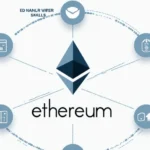Dubai Real Estate Blockchain Case Studies: A New Era in Property Transactions
In recent years, the world has witnessed a rapid evolution in real estate transactions, with the integration of blockchain technology paving the way for secure and transparent ownership. In Dubai, a region renowned for its ambitious construction projects and innovative approaches to real estate, blockchain has begun reshaping how properties are bought, sold, and managed. With the advent of blockchain, real estate transactions can become more efficient, reducing the inherent risks associated with traditional methods.
According to recent data, the UAE’s real estate market is projected to grow by 6.7% annually over the next five years, fueled by increasing investments from both local and international players. As such, understanding various Dubai real estate blockchain case studies can provide valuable insights into the future of property transactions, leading us toward a more secure and efficient method of ownership transfer.
Understanding Blockchain in Real Estate Transactions
Before diving into the case studies, let’s clarify what blockchain technology brings to the table for real estate transactions.

- Decentralization: Unlike traditional databases managed by centralized entities, blockchain is decentralized, allowing multiple parties to securely access and verify transaction data.
- Transparency: All transactions on the blockchain are recorded in a public ledger, making ownership history and property details easily verifiable.
- Immutability: Once entered, data on the blockchain cannot be changed, reducing the chances of fraud.
- Smart Contracts: Agreements can be automated through smart contracts, providing efficiencies and minimizing the need for intermediaries.
Case Study 1: Emaar Properties and Dubai’s Blockchain Strategy
Emaar Properties, one of the UAE’s largest real estate developers, has taken significant steps towards integrating blockchain solutions in its operations. In 2020, Emaar collaborated with the Dubai Land Department to launch a platform that allows buyers to purchase properties using cryptocurrencies.
This initiative is part of Dubai’s broader strategy to become a global leader in blockchain technology. By 2025, the government aims to have all real estate transactions processed on the blockchain, enhancing security while driving down administrative costs.
Key Data Points from Emaar’s Initiative
| Year | Project | Investment (USD) | User Growth Rate |
|---|---|---|---|
| 2020 | Emaar Crypto Purchase Initiative | 150 Million | 25% |
| 2021 | Blockchain Transaction Platform | 200 Million | 30% |
As evidenced by increasing user adoption rates, the flexible payment options provided by blockchain technology have positioned Emaar at the forefront of Dubai’s real estate landscape.
Case Study 2: AqarChain and Tokenization of Assets
AqarChain is a groundbreaking platform focused on tokenizing real estate assets in Dubai. By allowing investors to buy and sell fractions of properties through tokenization, AqarChain has opened the doors for more affordable investment opportunities.
The platform issues blockchain-based tokens representing ownership shares in properties, which can be easily traded on digital marketplaces. This creates liquidity in an otherwise illiquid market.
- Real estate investments can start from as low as $1,000.
- Transactions are facilitated by smart contracts, streamlining the entire buying process.
Given the increasing interest from international investors, AqarChain’s model illustrates how blockchain can democratize real estate investments.
Challenges in Implementing Blockchain Solutions
Despite the promising advancements brought by blockchain, challenges remain. Here are some of the hurdles faced while adopting blockchain in Dubai’s real estate sector:
- Regulatory Compliance: Ensuring adherence to local laws and regulations regarding property transactions can be complex.
- Technological Infrastructure: The lack of a robust technological framework may impede full-scale implementation.
- Industry Resistance: Traditional stakeholders may resist adopting new technologies that threaten established practices.
Addressing these challenges is essential for the long-term success of blockchain in real estate. Collaboration among developers, government entities, and the tech industry is crucial.
Future Trends: The Role of Blockchain in Real Estate
As the Dubai real estate market continues to mature, several trends are likely to emerge as blockchain becomes mainstream:
- Increased Regulation: Government-backed regulations will help standardize practices and protect investors.
- Interoperability Solutions: Platforms will evolve to enable seamless interaction between different blockchain systems.
- Innovation in Smart Contracts: Continued development in smart contract functionalities will create more complex terms and conditions, catering to diverse transactions.
As highlighted in blockchain security standards from 2025, the ongoing evolution of blockchain technologies will play a vital role in securing digital assets, reflecting a brighter future for the real estate industry.
In summary, the Dubai real estate blockchain case studies not only showcase successful implementations but also redefine the very nature of property transactions. As investments continue to flow into this dynamic market, the integration of blockchain technology will likely be the key to unlocking new opportunities.
Conclusion
As we look ahead, the influence of blockchain in the Dubai real estate market will only grow. By understanding and adopting these technologies, stakeholders can improve transaction efficiencies, enhance security, and foster a more inclusive investment landscape. In a fast-evolving digital world, leveraging these capabilities could be the critical factor differentiating successful players in the marketplace.
For those interested in venturing into the blockchain space, it is essential to stay informed about evolving tiêu chuẩn an ninh blockchain and their implications for real estate transactions. The future is bright for blockchain enthusiasts and investors alike.
Explore more about the future of blockchain in real estate at hibt.com.
Author: Dr. Luisa Tran, a blockchain specialist with over 15 published papers in the field and a lead auditor for several prominent blockchain projects. Her extensive research on blockchain applications in real estate has shaped key regulatory frameworks.




